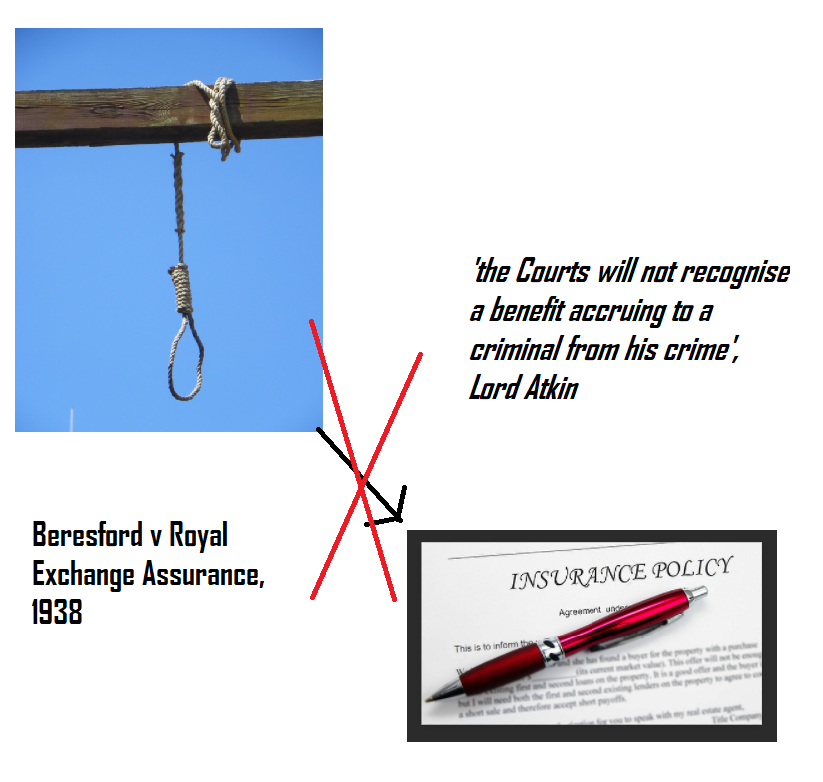Beresford v Royal Exchange Assurance, [1938] AC 586, HL
Citation: Beresford v Royal Exchange Assurance, [1938] AC 586, HL
Rule of thumb:If someone has a life insurance policy and they commit suicide, does the life insurance policy apply? No, suicide is an illegal act so the contract is void based on illegality. Where a party has committed violence in order for rights under a contract to become crystallised, or obtain the benefits of legal rights in general, they will not be entitled to them based on illegality.
Background facts:The facts of this case were that a man took out a life insurance policy for £50,000. The policy simply stated at one, ‘if the man dies, either sane or insane from one year of that date, then £50,000 would be payable’. No other details were provided. The man then shot himself, and the man's survivor, Beresford, sought to sue the insurance company for the insurance payout. The insurance company refused to pay this so the matter ended up going to Court.
Parties argued:Beresford argued that the principle of construction and interpretation of contract applied to this matter. Beresford argued that this contract clearly stated the payout had to be made, and could indeed be read no other way. The insurance company argued that the principle of illegality applied to this - they argued that suicide was a crime and the principle of illegality stated that no person could legally benefit from an act of crime.
Judgment:
The Court upheld the arguments of the insurance company. The Court affirmed that this was a clear case of illegality and that Beresford could not rely upon an act of illegality to claim money. The Court affirmed that the principle of illegality prevented this money from becoming claimable. The Court largely relied on ‘Crippen’s case, 1911’, where the Court held that a man was not entitled to the estate of his wife after he killed her, and this case was based upon the same principle. The Court affirmed that suicide was an illegal act, a crime, and that committing a crime could not lead to an enforceable contract like this – this is also referred to as the ancient Roman law principle of ex 'turpi causa non oritur actio', or often 'turpi causa' for short, affirming that this legal principle has indeed been in place in society for centuries.

Ratio-decidendi:
‘... insurance law an assured cannot by his own deliberate act cause the event upon which the insurance money is payable. The insurers have not agreed to pay on that happening. The fire assured cannot recover if he intentionally burns down his house, nor a marine assured if he scuttles his ship, nor the life assured if he deliberately ends his own life. This is not the result of public policy, but of the correct construction of the contract.’ and ‘But apart from these considerations the absolute rule is that the courts will not recognise a benefit accruing to a criminal from his crime’, Lord Atkin

